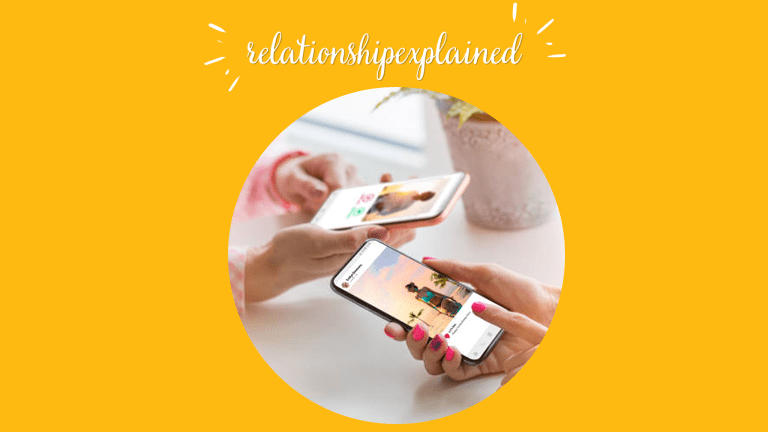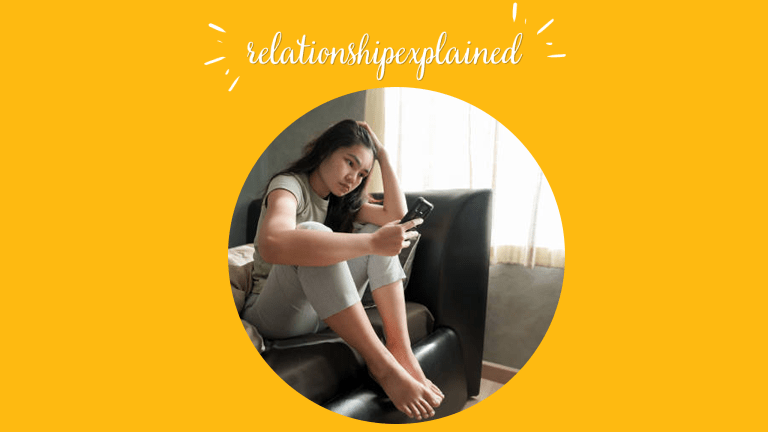What Does It Mean When A Guy Calls You “Buddy”?
Have you been called “buddy” or “bud” by a friend? Learn how people use this term and what it may signify for your prospects of building a romantic relationship with them.
When a guy calls you "buddy," it can leave you wondering about the truth behind this seemingly innocent word.
While the word "buddy" is commonly used among friends to express camaraderie and familiarity, its interpretation in a specific context can vary. In some cases, it might indicate that the guy sees you as a good friend or girl buddy, emphasizing a platonic relationship.
However, in certain situations, guys’ and girls’ use of "buddy" can be a subtle way to communicate disinterest or establish boundaries. This suggests that they may not be interested in a romantic relationship.
Let’s look at the possible meaning behind the word “buddy” and how to deal with someone referring to you as such.
The Possible Meaning Behind Someone Calling You “Buddy”
The meaning behind someone calling you "buddy" can vary widely based on the context and tone of the interaction. It can express genuine friendship, denote a platonic relationship, or even be used to set boundaries.
Let’s delve into the various interpretations, obvious and vague, of why someone might call you "buddy."
1. Context And Tone
One of the most crucial factors in deciphering the meaning of "buddy" is the context and tone in which it's used. If a person addresses you as "buddy" in a friendly, warm, and upbeat manner, it's often a sign of camaraderie and affection. In such cases, it usually implies that you're considered a close friend or someone they share a positive rapport with.
However, if the tone is less enthusiastic or seems distant, it may suggest a more platonic or neutral relationship. When "buddy" is delivered with a lack of enthusiasm or seems obligatory, it might indicate that the person is trying to maintain a polite distance.
2. Body Language
Pay attention to the speaker's body language when they use the word "buddy." A friendly pat on the back or a warm smile while saying it typically conveys genuine friendliness.
On the other hand, if there is a noticeable lack of physical warmth or a certain stiffness, it might signify a more detached or formal relationship. This takes any chances of a romantic relationship off the table.
3. Facial Expressions
Facial expressions can also provide valuable clues about the meaning behind "buddy." If the person is smiling, making eye contact, and seems genuinely glad to see you, then the term likely carries a friendly connotation. Conversely, if their expression is blank or indifferent, it might be an indicator of a more impersonal connection.
4. Style Of Communication And Personality
Individual personalities and communication styles can greatly influence the use of the word "buddy." Some people are naturally more reserved and might use "buddy" as a way to maintain a comfortable distance while still being polite. Others, who are outgoing and warm, might use it to express their genuine friendship.
5. Friendly Scenarios
In situations where "buddy" is used within a group of friends or in a casual setting, it typically signifies a strong sense of friendship and camaraderie. It's like a verbal hug that reinforces the bond between a guy and girl buddy and signifies mutual trust and affection.
6. Establishing Boundaries
Sometimes, "buddy" is employed as a subtle way to establish boundaries. If you've been showing romantic interest, and the person starts using "buddy" more frequently, it might be their way of signaling that they see you as just a friend. In this case, it's crucial to respect their feelings and boundaries.
7. Condescending Scenarios
On the less friendly side of things, "buddy" can also be used condescendingly. If someone says it in a patronizing or sarcastic tone, it's a clear sign that they're belittling you. This usage is often intended to assert dominance or to mock you.
Responding To Someone Calling You “Buddy”
Responding when a person calls someone "buddy" can depend on various factors. This includes the nature of your relationship with that person and the context in which the term is used.
Remember that the way you answer to being called "buddy" can influence the dynamics of your relationship. Regardless of the context, staying calm and respectful in your response is generally a good rule of thumb.
Let's explore how your answers might vary in different situations and when faced with other signs of a non-romantic relationship.
1. When a Close Friend Calls You "Buddy"
When a good friend uses the term "buddy" or “mate” to refer to you, it typically signifies a strong and friendly connection between a guy and girl buddy. This is a warm and affectionate compliment to your bond that can also become a nickname for either of you.
Responding with a comment in kind with a friendly and upbeat demeanor is usually the best approach. You can reciprocate the friendliness with a smile and a cheerful greeting like, "Hey, buddy! How's it going?", or “Everything is cool with you, bro?” This not only acknowledges the friendship but also reinforces the positive connection you share.
In interactions with close friends, it's often about maintaining a sense of camaraderie and shared experiences. Embracing the term "buddy" in this context helps strengthen your friendship and keeps the atmosphere light and enjoyable.
2. When "Buddy" Is Used to Define Boundaries
In certain situations, you may notice that somebody begins to use "buddy" more frequently, and it's not in the same friendly manner you're used to. This shift may indicate that the person is trying to establish boundaries, signaling that they see your guy and girl buddy relationship as strictly platonic. This can be a sensitive moment that requires empathy and understanding.
To act upon this scenario, you should acknowledge their choice of words and express your appreciation for their honesty. You might say something like, "I appreciate your honesty, and I value our friendship too." This response shows that you respect their feelings and boundaries while also affirming your appreciation for the connection you share.
Remember, it's essential to handle this situation with grace and maturity, as it can be a pivotal moment in maintaining a positive and respectful relationship.
3. When "Buddy" Is Used Condescendingly
On the less pleasant side of things, "buddy" can be used condescendingly or patronizingly. When this happens, it can be frustrating and challenging to accept and talk about it appropriately. The key here is to maintain your composure and assert your boundaries firmly without resorting to aggression.
In such cases, you can calmly but assertively express your preference. For example, you might say, "I prefer to be addressed by my name" or "Let's keep the conversation respectful." These responses communicate that you expect to be treated with respect and dignity, regardless of the situation.
Handling condescending scenarios requires confidence and self-assuredness while you challenge their views or position. By talking assertively rather than aggressively, you can maintain your self-respect and set the tone for respectful interactions in the future.
Is “Buddy” A Friend Zone Term?
The use of "buddy" can sometimes be associated with the friend zone, but it's not always the case. When a person calls you "buddy," it may indicate that they see you as a friend rather than a romantic partner. In this sense, it can be linked to the idea of being in the friend zone, where romantic interest is not reciprocated.
However, it's essential to remember that being referred to as "buddy" doesn’t always imply the friend zone. Some people naturally use this term to address their friends in a friendly and affectionate way without any romantic implications. It's all about context and the overall dynamics of your relationship.
Ultimately, the interpretation of "buddy" as a friend zone term can vary from person to person. If you're uncertain about someone's feelings, it's best to communicate openly and honestly to inform your relationship and avoid misunderstandings.
What If Your Crush Calls You “Buddy”?
If your crush calls you "buddy," it can be a bit puzzling and the possible answer categories leave you wondering about their feelings. This situation often arises when you're interested in more than just friendship, and it can be a delicate matter to address.
First, it's essential to consider the context and tone of their use of the term. Sometimes, your crush might call you "buddy" casually, especially if you have a friendly rapport. In such cases, it may not necessarily signal a lack of interest, but rather their way of addressing you in a friendly manner.
However, if your crush consistently refers to you as "buddy" in a platonic and distant way, it might be their way of subtly indicating that they see your relationship as purely friends. In this situation, it's important to respect their boundaries and not push for something more if they're not interested.
The best course of action is to communicate openly and honestly with your crush about your feelings. If you're comfortable doing so, you can express your interest and ask how they feel about your relationship. This conversation can provide clarity and help you both understand each other's intentions better without a doubt.
Conclusion
Being called "buddy" carries various meanings based on context, tone, and relationship dynamics. It can signify friendship and warmth, define boundaries, or, in less friendly situations, come across as condescending to your male or female friend.
How you respond depends on the situation and who you are with. With a best friend, embrace it warmly and when setting boundaries, be understanding. In condescending moments with an acquaintance, it’s important to assert your respect.
And if your crush calls you "buddy," consider their tone and, if needed, have an open conversation. Remember, communication and respect are key in understanding the true message behind this simple yet nuanced word.












